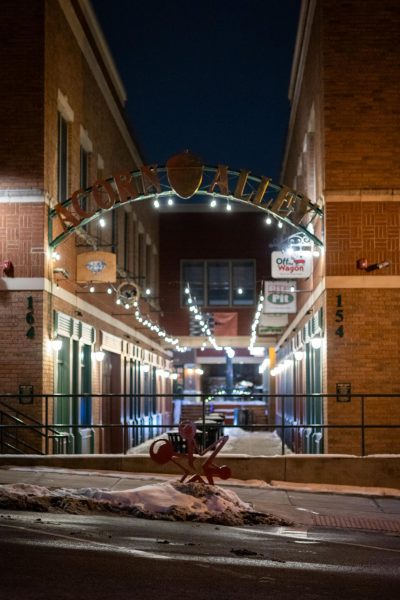Guns and gangsta athletes
February 5, 2010
The recent incident involving Washington Wizards basketball player Gilbert Arenas and teammate Javaris Crittenton is yet another example of how deeply ingrained the “gangsta” culture is in the world of today’s professional athlete.
It was reported that the two players drew handguns on each other in the Wizards locker room prior to a game on Christmas Eve. The teammates were feuding about a gambling debt from a card game.
There are conflicting reports as to what happened, but it’s apparent that Crittenton was threatening Arenas because of money he was owed. Arenas later told authorities he then tried to make light of the situation by taking out four unloaded guns, which he had stored in his locker. He placed them on a chair and “jokingly” told Crittenton to choose one and put his money where his mouth is. Feeling disrespected, Arenas’ teammate then took out a gun of his own and popped a live round into its chamber. The two Wizards then pointed the guns at each other.
No one was hurt. It was all a joke.
This is what Arenas, Crittenton and other witnessing Wizards in the locker room claim. Days after the story broke, with a smile on his face, Arenas mockingly pretended to shoot his teammates with his fingers on the court before a game in Philadelphia.
Did you know that up until 1997 the Wizards used to be called the Washington Bullets? Ironic, isn’t it?
Both players have since been suspended from the NBA for the remainder of the season, without pay. Star “shooting guard” Gilbert Arenas isn’t laughing anymore, as he stands to lose roughly $147,200 with each game he misses in his 6-year, $111 million contract. He could also face serious jail time.
Unfortunately, the concept of athletes possessing dangerous weapons isn’t a new one. Last September Cleveland Cavalier Delonte West was pulled over on a three-wheeled motorcycle after cutting off a cop on the highway. He had a Beretta 9mm in his waistband, a Ruger .357 magnum strapped to his leg and a shotgun in a guitar case, which he was wearing on his back. Just because Delonte thought he was in the video game “Grand Theft Auto” doesn’t make it right.
Shortly after winning a Super Bowl with the New York Giants, wide receiver Plaxico Burress accidentally shot himself in the thigh in a nightclub. He was charged with criminal possession of a weapon and is currently serving a 2-year prison sentence.
Thankfully, none of these incidents involved others being physically hurt. But there have been a number of cases involving professional athletes and murder. In 2000, Baltimore Ravens linebacker Ray Lewis was linked to a dispute that involved the stabbing of two individuals. A few years ago, former NFL running back Adam “Pacman” Jones allegedly ordered the shooting of a man after an altercation at a strip club. And then there was O.J.
Why is it that people like Gilbert Arenas feel the need to carry guns on them? Is it for street cred? Respect? According to many athletes, it’s for protection. They increasingly perceive danger in the world they live in. Players and team officials estimate a vast majority of NBA and NFL athletes carry firearms, legally or illegally.
What I don’t understand is if these multi-millionaires are legitimately in danger, why don’t they just hire some security? It’s a fact that many of these athletes come from rough, crime-ridden areas. I imagine these athletes are packing heat for the occasions when they go back to the dangerous old neighborhood. It is the “gangsta” mentality, which inundated them as youths, that tells them they must be accompanied by guns, not bodyguards, so they appear hard and not weak.
Pulling out a gun to prove how big of a “man” you are is very cowardly, but it is gangsta. It is athletes like Gilbert Arenas that play into the stereotype that you can take the man out of the hood, but you can’t take the hood out of the man.
Mike Crissman is a freshman journalism major and columnist
for the Daily Kent Stater.
Contact him at [email protected].
























